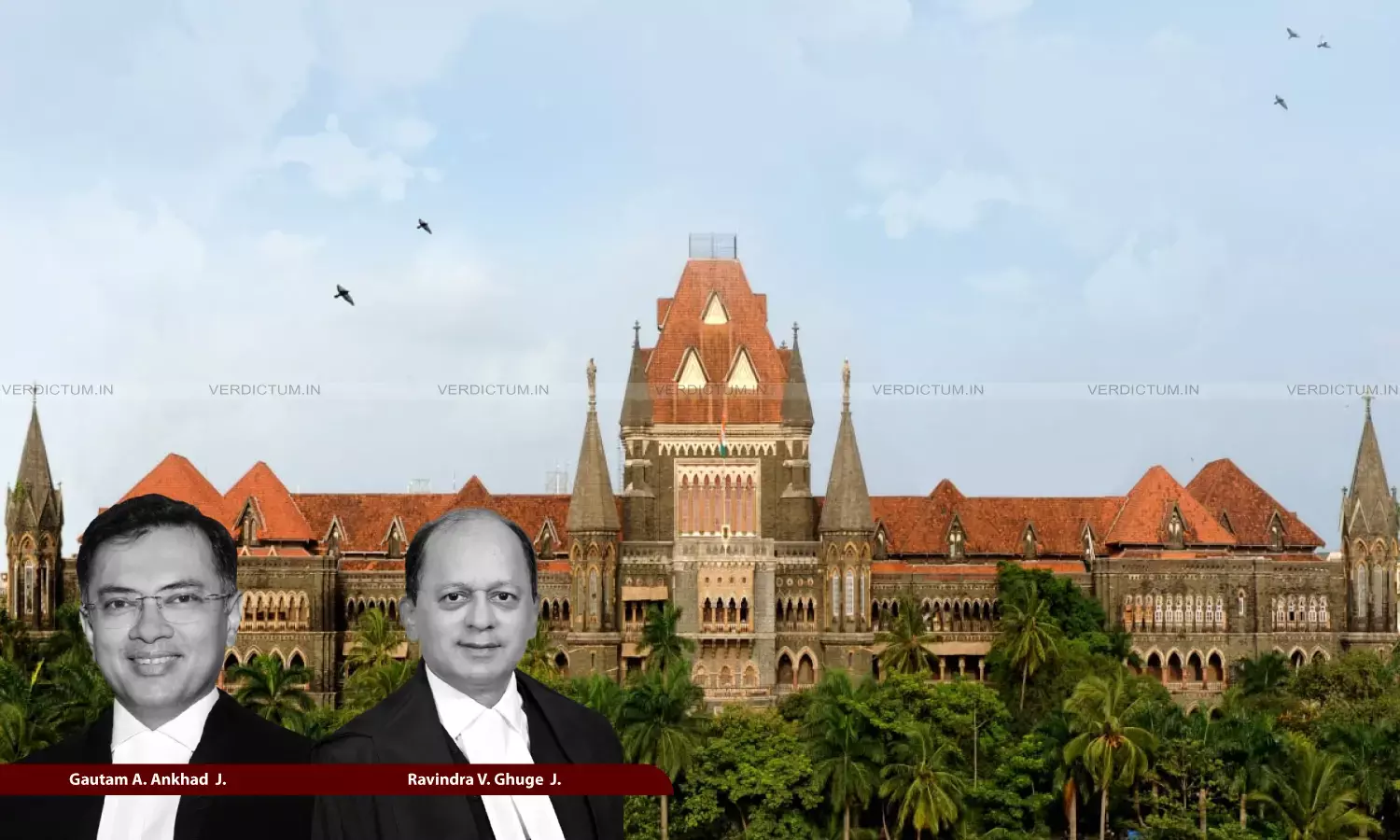Habeas Corpus Maintainable In Child Custody Matters In Exceptional Cases: Bombay High Court
The Court held that while custody disputes are ordinarily to be adjudicated through the comprehensive mechanism of the Guardians and Wards Act, 1890, in extraordinary circumstances, the High Court can intervene under its writ jurisdiction to secure the welfare of the child.

Justice Gautam A. Ankhad, Justice Ravindra V. Ghuge, Bombay High Court
The Bombay High Court has held that while questions of child custody must usually be decided under the Guardians and Wards Act, 1890, a writ of habeas corpus is maintainable in exceptional circumstances.
The Court was hearing a habeas corpus petition filed by the biological father of five-year-old twins, seeking custody of one child who had been residing with his grandmother since birth. The petition arose amidst parallel proceedings pending before the Family Court under the Guardians and Wards Act, 1890.
A Division Bench comprising Justice Ravindra V. Ghuge and Justice Gautam A. Ankhad, while pronouncing judgment, observed: “Ordinarily, child custody disputes are to be addressed under the Guardians and Wards Act, 1890, through a comprehensive inquiry by the competent Court. However, in exceptional circumstances, the questions of custody can be examined within the limited scope of Writ jurisdiction. We are of the view that the present matter falls within such an extraordinary category.”
Advocate M.J. Reena Rolland appeared for the petitioner. APP Mayur Sonavane represented the State, while Advocate Parul Shah appeared for the respondents.
Background
The petitioner, father of twin boys born in 2019 through surrogacy, sought custody of one of his sons from his mother. At the time of birth, due to medical complications, one child was entrusted to the care of the grandmother. While the petitioner retained custody of the other twin continued to live with the grandmother.
Following family disputes, multiple legal proceedings ensued. The petitioner filed applications before the Family Court under Section 25 of the Guardians and Wards Act, seeking custody. Meanwhile, the grandmother lodged an FIR against the petitioner under the provisions of the Bharatiya Nyaya Sanhita and the Maintenance and Welfare of Parents and Senior Citizens Act, 2007.
Amidst these proceedings, the petitioner approached the High Court with a habeas corpus petition, claiming unlawful deprivation of custody and asserting his rights as the natural guardian.
Court's Observation
The Bench reiterated that habeas corpus is an extraordinary remedy to address unlawful custody of minors and is maintainable in exceptional cases even when proceedings under the Guardians and Wards Act are pending.
The Court held that the biological father, being the natural guardian, had an undisputed right to the custody of his child. Allegations raised by the grandmother about the petitioner’s financial or emotional incapacity were rejected, with the Court noting that the petitioner was gainfully employed, living with his wife, and already caring for the other twin, who suffers from cerebral palsy.
While acknowledging the emotional bond shared between the child and the grandmother, the Court clarified that such attachment could not override the superior custodial rights of the parents. It further stressed that property-related disputes could not deprive biological parents of lawful custody.
Placing reliance on recent Supreme Court rulings, including Tejaswini Gaud v. Shekhar Tiwari and Gautam Kumar Das v. NCT of Delhi, the Bench affirmed that grandparents or relatives cannot retain custody against the natural guardian unless it is shown that such custody would be detrimental to the welfare of the child.
Conclusion
Accordingly, the Court directed the police to secure custody of the minor child from the grandmother and hand him over to the petitioner within two weeks. At the same time, recognising the welfare of the child, the Court provided limited visitation rights to the grandmother and other relatives to ensure a smooth transition.
The petition was partly allowed, with no order as to costs.
Cause Title: Pravin Nathalal Parghi v. The State of Maharashtra & Ors (Neutral Citation: 2025:BHC-AS:37140-DB)
Appearances
Petitioner: Advocate M.J. Reena Rolland with Aishwarya Bhandary
Respondents: Advocate Parul Shah, APP Mayur Sonavane


